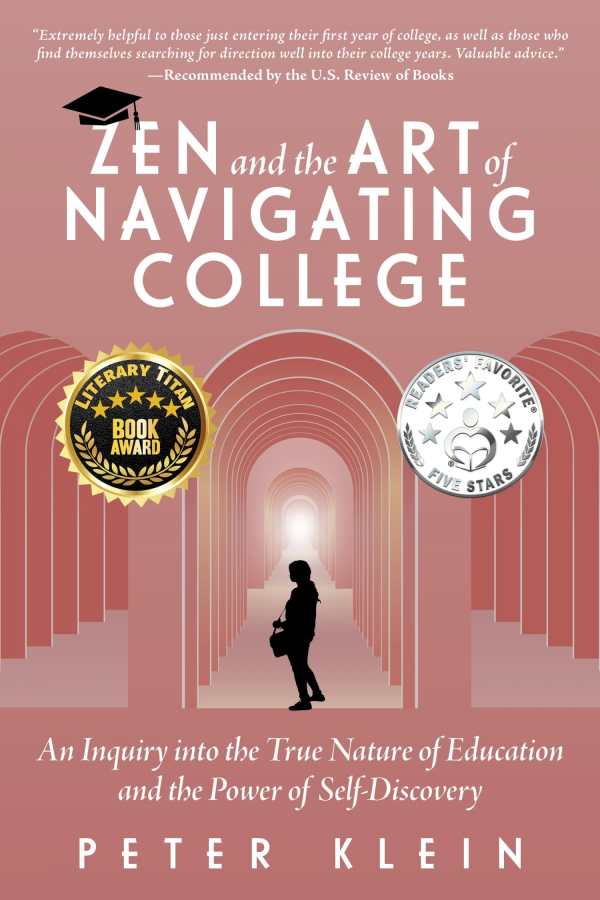Zen and the Art of Navigating College
An Inquiry into the True Nature of Education and the Power of Self-Discovery
Zen and the Art of Navigating College is an ambitious, advice-filled guide to getting the most out of higher education.
Drawing on personal experiences and the stories of great thinkers, Peter Klein’s education guide Zen and the Art of Navigating College suggests ways to make the most out of the college experience.
Like many Americans, Klein experienced disappointment and confusion in his college and graduate-school experiences, acquiring degrees in the sciences and then working in different fields. Certain that he was not alone in this dissonance, he set out to write a guide that he felt he would have benefited from. The result is a story-filled text that idealizes education alongside stories of how notable people, including physicist Albert Einstein and writer Henry David Thoreau, experienced it.
Herein, college is approached as a buffet of experiences. At some points astute and at others too narrow, the book includes solid general recommendations for prospective students, as with its familiar encouragements to take courses outside one’s major, network, and take advantage of the counseling and psychological services on campus. Developing a growth mindset and being able to survive discomfort are among the other common skills that it endorses.
However, the book also includes some more quixotic and undersupported notions, as when it comes to its coverage of taking electives and exploring minors: it declares that there are only four relevant disciplines in modern society (psychology, science, economics, and geopolitical history), and that the arts, literature, anthropology, and other human disciplines are not relevant to understanding contemporary life. Indeed, the book’s suggestions that the inherent purpose of college is to produce more capitalist workers is limiting. It is also at odds with the book’s coverage of Carl Jung and other psychologists who encouraged inner exploration as a means of fulfillment. Though such figures are held in high regard, they are an uneasy fit with the book’s emphasis on the importance of being business minded.
The book’s examples are also far from comprehensive: white men are the only celebrities mentioned; the gendered pay gap is underacknowledged; and the fact that the GI Bill only allowed white soldiers to attend college for free, thereby perpetuating racial disparities in higher education, is not sufficiently addressed. Further, some of the book’s other examples work against their intended points, as with a gruesome description of the college students who died in the Dyatlov Pass tragedy that functions to discourage taking risks, not the opposite. As it rambles toward its conclusion, the book comes to seem less useful as a guide for future students than it is sympathetic—an account of one former student’s uncertain path through higher education, to which Klein’s contemporaries may relate.
Zen and the Art of Navigating College is an ambitious, advice-filled guide to getting the most out of one’s higher education—but only as it relates to Western, capitalist values.
Reviewed by
Jeana Jorgensen
Disclosure: This article is not an endorsement, but a review. The publisher of this book provided free copies of the book and paid a small fee to have their book reviewed by a professional reviewer. Foreword Reviews and Clarion Reviews make no guarantee that the publisher will receive a positive review. Foreword Magazine, Inc. is disclosing this in accordance with the Federal Trade Commission’s 16 CFR, Part 255.

